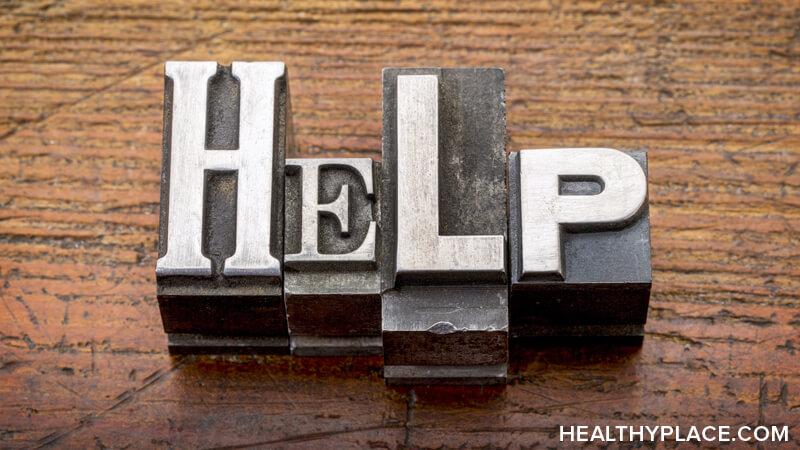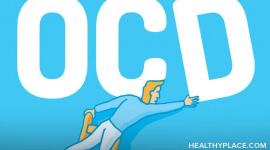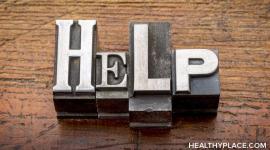OCD Help and OCD Self Help

People suffering from obsessive-compulsive disorder can get OCD help from a variety of sources. OCD is a chronic mental illness which requires that patients manage and cope with symptoms throughout their lives. If you spend large amounts of time performing rituals in an attempt to stop repetitive thoughts, you need to seek OCD help. This article also contains 4 effective OCD self-help strategies.
Types of OCD Help
Those with obsessive-compulsive disorder should first get OCD help from a mental health professional. A psychiatrist or therapist will evaluate the type of OCD you have and the intensity of your symptoms. He or she can then develop an effective plan to treat your OCD symptoms and keep them under control. Ask you primary care physician to recommend a therapist to you. If you don't have a regular physician, ask a friend or pastor to help you find one. You can also visit the National Alliance on Mental Illness (NAMI) website. NAMI has many resources for those suffering from mental illnesses of all types and has face-to-face support groups in most medium and large cities around the U.S.
Doctors use a number of approaches when treating obsessive-compulsive disorder:
OCD Help Provided by Mental Health Professionals
- Cognitive-behavioral therapy for OCD
- Exposure and response prevention (ERP) – repeatedly exposes the patient to obsessive triggers while the patient responds by refraining from performing the compulsive ritual. This is one of the most effective strategies available for successful OCD help.
- Cognitive therapy (CT) – focuses on teaching patients to take a much more objective view of their obsessive thoughts and gives them healthy ways to respond to the thoughts without engaging in compulsions.
- Medications for OCD – the most effective medicines belong to a class of drugs called selective serotonin reuptake inhibitors (SSRIs). These drugs increase the amount of serotonin in the brain. SSRIs have fewer side effects than older antidepressants and have become a first-line treatment for people seeking OCD help.
- Other OCD treatments
- Deep brain stimulation
- Hypnosis
- Biofeedback
- Residential care
- Group therapy for OCD – people with OCD get support and encouragement by interacting with others suffering from the condition. The social aspect of the group also decreases the feeling of isolation that OCD patients commonly experience.
- Family therapy for OCD – family therapy can help reduce conflicts and other problems caused by OCD. It deepens understanding of the condition and empowers family members to support and help their loved ones.
Having a strong treatment team and engaging in your treatment will give you a lot of the OCD help you need.
OCD Self-Help Strategies
The best OCD self-help approach involves learning as much as you can about the disorder. The better you understand your condition, the better you can manage your symptoms. Here are 4 OCD self-help ideas:
Keep a Journal
One great OCD self-help tip is start keeping a journal of your obsessive thoughts and associated fears. Write all your thoughts down so you'll see how many times you repeat your thoughts. Write down all of the urges and compulsions that go along with the thoughts. Writing them down occupies your mind with the task rather than directly obsessing, helping the anxiety to dissipate quicker. When you keep writing the same phrase over again, it loses its power and meaning.
Identify Triggers
By identifying and anticipating your urges before they come up, you can reduce their intensity more easily. If you always doubt that you turned the stove or gas off and that triggers your compulsive checking ritual, pay close attention to your actions when you turn it off. Create a mental picture of yourself turning the stove off. Tell yourself that you've now turned the stove off. When the urge to check it comes up, re-label it for what it is – an obsessive thought. This takes practice and mindfulness, but many find it an effective OCD self-help tool.
Practice Relaxation Techniques
Learn about deep breathing techniques and progressive muscle relaxation. These tools can help reduce stress and worry that represent common triggers for OCD symptoms. Relaxation skills can act as very effective techniques in your OCD self-help plan.
Get Physical
Exercise can go along way toward giving you an overall sense of wellbeing in addition to reducing stress and emotional upset. Regular exercise of a challenging intensity may reduce the frequency and severity of OCD thoughts and behaviors.
OCD Self-Help Books
Finally, check out these books that focus on OCD self-help:
Brain Lock: Free Yourself from Obsessive-Compulsive Disorder by Jeffrey Schwartz and Beverly Beyette
Coping with OCD: Practical Strategies for Living Well With Obsessive-Compulsive Disorder by Bruce M. Hyman
Overcoming Obsessive Thoughts: How to Gain Control of Your OCD by Christine Purdon, David A. Clark
APA Reference
Gluck, S.
(2022, January 10). OCD Help and OCD Self Help, HealthyPlace. Retrieved
on 2026, March 3 from https://www.healthyplace.com/ocd-related-disorders/ocd/ocd-help-and-ocd-self-help



